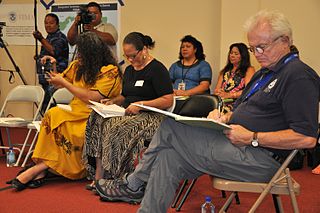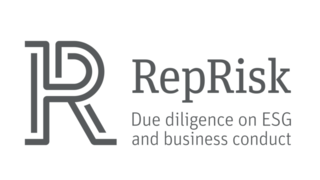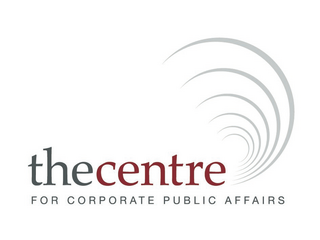
Communication is commonly defined as the transmission of information. Its precise definition is disputed and there are disagreements about whether unintentional or failed transmissions are included and whether communication not only transmits meaning but also creates it. Models of communication are simplified overviews of its main components and their interactions. Many models include the idea that a source uses a coding system to express information in the form of a message. The message is sent through a channel to a receiver who has to decode it to understand it. The main field of inquiry investigating communication is called communication studies.

Public relations (PR) is the practice of managing and disseminating information from an individual or an organization to the public in order to influence their perception. Public relations and publicity differ in that PR is controlled internally, whereas publicity is not controlled and contributed by external parties. Public relations may include an organization or individual gaining exposure to their audiences using topics of public interest and news items that do not require direct payment. The exposure is mostly media-based, and this differentiates it from advertising as a form of marketing communications. Public relations aims to create or obtain coverage for clients for free, also known as earned media, rather than paying for marketing or advertising also known as paid media. But in the early 21st century, advertising is also a part of broader PR activities.
Psychometrics is a field of study within psychology concerned with the theory and technique of measurement. Psychometrics generally covers specialized fields within psychology and education devoted to testing, measurement, assessment, and related activities. Psychometrics is concerned with the objective measurement of latent constructs that cannot be directly observed. Examples of latent constructs include intelligence, introversion, mental disorders, and educational achievement. The levels of individuals on nonobservable latent variables are inferred through mathematical modeling based on what is observed from individuals' responses to items on tests and scales.
The reputation or prestige of a social entity is an opinion about that entity – typically developed as a result of social evaluation on a set of criteria, such as behavior or performance.

Research and development is the set of innovative activities undertaken by corporations or governments in developing new services or products. R&D constitutes the first stage of development of a potential new service or the production process.

Corporate social responsibility (CSR) or corporate social impact is a form of international private business self-regulation which aims to contribute to societal goals of a philanthropic, activist, or charitable nature by engaging in, with, or supporting professional service volunteering through pro bono programs, community development, administering monetary grants to non-profit organizations for the public benefit, or to conduct ethically oriented business and investment practices. While once it was possible to describe CSR as an internal organizational policy or a corporate ethic strategy similar to what is now known today as Environmental, Social, Governance (ESG); that time has passed as various companies have pledged to go beyond that or have been mandated or incentivized by governments to have a better impact on the surrounding community. In addition, national and international standards, laws, and business models have been developed to facilitate and incentivize this phenomenon. Various organizations have used their authority to push it beyond individual or industry-wide initiatives. In contrast, it has been considered a form of corporate self-regulation for some time, over the last decade or so it has moved considerably from voluntary decisions at the level of individual organizations to mandatory schemes at regional, national, and international levels. Moreover, scholars and firms are using the term "creating shared value", an extension of corporate social responsibility, to explain ways of doing business in a socially responsible way while making profits.
Reputation management, originally a public relations term, refers to the influencing, controlling, enhancing, or concealing of an individual's or group's reputation. The growth of the internet and social media led to growth of reputation management companies, with search results as a core part of a client's reputation. Online reputation management, sometimes abbreviated as ORM, focuses on the management of product and service search engine results.

Social responsibility is an ethical concept in which a person works and cooperates with other people and organizations for the benefit of the community.
A sustainable business, or a green business, is an enterprise that has a minimal negative impact or potentially a positive effect on the global or local environment, community, society, or economy—a business that attempts to meet the triple bottom line. They cluster under different groupings and the whole is sometimes referred to as "green capitalism". Often, sustainable businesses have progressive environmental and human rights policies. In general, a business is described as green if it matches the following four criteria:
- It incorporates principles of sustainability into each of its business decisions.
- It supplies environmentally friendly products or services that replace demand for nongreen products and/or services.
- It is greener than traditional competition.
- It has made an enduring commitment to environmental principles in its business operations.
Sustainability reporting refers to the disclosure, whether voluntary, solicited, or required, of non-financial performance information to outsiders of the organization. Sustainability reporting deals with qualitative and quantitative information concerning environmental, social, economic and governance issues. These are the criteria often gathered under the acronym ESG.

The World Association of Newspapers and News Publishers (WAN-IFRA) is a non-profit, non-governmental organization made up of 76 national newspaper associations, 12 news agencies, 10 regional press organisations, and many individual newspaper executives in 100 countries. The association was founded in 1948, and, as of 2011, represented more than 18,000 publications globally.
Expansión is a Spanish economic and business newspaper published in Madrid, Spain.
Uusi Suomi was a Finnish daily newspaper that was published from 1919 to 1991. The headquarters was in Helsinki, Finland.
Cornelis Bernardus Maria (Cees) van Riel is a Dutch organizational theorist, consultant, and Professor of Corporate Communication at Rotterdam School of Management and Director of the Corporate Communication Centre at the Erasmus University, known for his work in the area of corporate communication and reputation management.

Corporate finance is the area of finance that deals with the sources of funding, and the capital structure of businesses, the actions that managers take to increase the value of the firm to the shareholders, and the tools and analysis used to allocate financial resources. The primary goal of corporate finance is to maximize or increase shareholder value.

RepRisk AG is an environmental, social, and corporate governance (ESG) data science company based in Zurich, Switzerland, specializing in ESG and business-conduct risk research, and quantitative solutions.
Delovoy Peterburg is a daily business newspaper published in Saint Petersburg, Russia. The paper has been in circulation since 1993.

Actualidad Económica is a monthly business magazine published in Madrid, Spain. It has been in circulation since 1958.
Naomi Sager is an American computational linguistics research scientist. She is a former research professor at New York University, now retired. She is a pioneer in the development of natural language processing for computers.

The Centre for Corporate Public Affairs is a Sydney-based membership organisation dedicated to identifying and spreading best practices in managing corporate public affairs globally. It has about 120 members from corporations, industry associations, and government business enterprises operating across the Asia Pacific.










